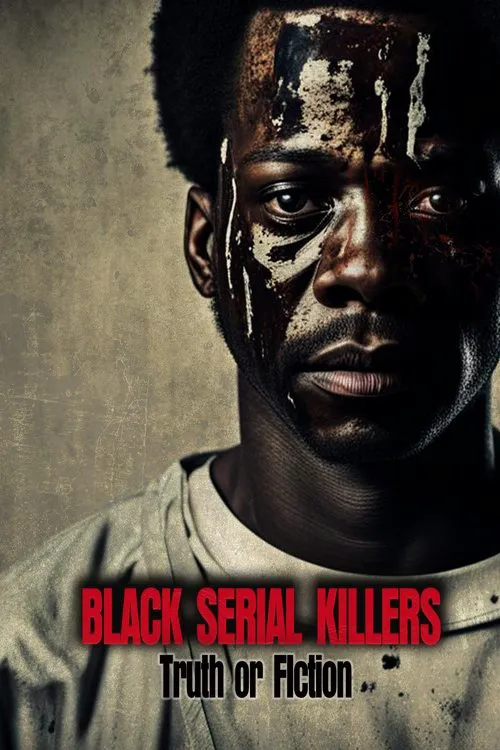Black Serial Killers:Truth or Fiction

Plot
Black Serial Killers: Truth or Fiction is a documentary film that sheds light on a lesser-known segment of serial killers in America - African-American serial killers. Director Sean Reid takes a critical look at the lack of public information and media representation about this group of individuals, who, combined, have committed an alarming 85 confirmed murders. By examining the lives and crimes of Samuel Little, The Grim Sleeper, and The Sunday Morning Slasher, among others, Reid raises important questions about racial bias and stereotypes in the portrayal of serial killers in media. The film begins with an exploration of the fascination that Americans have with serial killers. From Ted Bundy to John Wayne Gacy and Jeffrey Dahmer, the public's interest in these individuals is clear. However, Reid argues that this fascination is largely limited to white serial killers, while their African-American counterparts remain relatively unknown. He attributes this to a lack of media representation and public information about black serial killers, which in turn perpetuates negative stereotypes and biases. To understand the history and context of African-American serial killers, Reid interviews Professor Allan Branson, a criminal justice expert. Branson takes the audience on a journey through the timeline of African-American serial killers, highlighting key figures such as Samuel Little, also known as Samuel McDowell, who was a prolific serial killer with a body count estimated to be over 90. Little's crimes spanned several decades, from the 1970s to the 1990s, and occurred across multiple states. Another figure discussed in the film is Lonnie David Franklin Jr., also known as The Grim Sleeper, who terrorized South Central Los Angeles in the 1980s and 1990s, leaving a trail of 10 victims in his wake. Franklin's crimes were marked by their brutality and efficiency, with many of his victims being young African-American women. The film also delves into the case of the Sunday Morning Slasher, a serial killer who targeted young black women in Chicago during the 1970s. Reid's documentary also touches on the stereotypes and biases that have influenced the portrayal of African-American serial killers in media. Branson explains that black serial killers are often reduced to simplistic explanations, such as being driven by a desire for revenge against white society or by a desire for notoriety. These stereotypes not only oversimplify the complexities of the crimes but also perpetuate negative attitudes towards African-Americans as a whole. Furthermore, the film highlights the lack of comprehensive research and studies on African-American serial killers. Unlike white serial killers, whose crimes have been extensively studied and analyzed, black serial killers have been largely overlooked. This lack of research and analysis has significant implications, not only for our understanding of the causes and motivations behind these crimes but also for the potential victims who may be targeted in the future. One of the most striking aspects of the film is its exploration of the societal and cultural factors that contribute to the rise of African-American serial killers. Branson suggests that poverty, unemployment, and lack of access to education and resources can create an environment in which individuals are more likely to engage in violent and antisocial behavior. This is not to suggest that poverty and unemployment are the sole causes of serial killing, but rather that they can contribute to a broader set of social and economic issues that put individuals and communities at risk. In conclusion, Black Serial Killers: Truth or Fiction is a thought-provoking documentary that sheds light on a significant and disturbing gap in our understanding of serial killers. By exploring the lives and crimes of African-American serial killers, Reid highlights the importance of critically examining our assumptions and biases about these individuals and the communities they come from. Ultimately, the film serves as a reminder that the complexities of serial killing cannot be reduced to simplistic explanations or stereotypes, and that a more nuanced understanding of these crimes requires a more comprehensive and inclusive approach.
Ulasan
Rekomendasi



